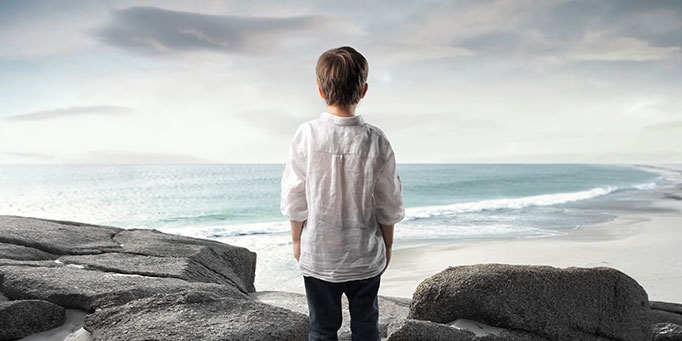
In times of change, kids need ‘certain certainties’
Good advice from Frozen II … and the Bible!
Frozen II is a great movie that addresses an important question: how do we cope with change? The movie begins with the ‘happily-ever-after’ ending of the first movie—the queen sits on the throne with loved ones around her, the kingdom is at peace and life is sweet. As they notice the seasons changing, the lead characters sing:
I rely on certain certainties …
Some things never change
Like the feel of your hand in mine
Some things stay the same
Like how we get along just fine
Like an old stone wall
That can never fall
Some things are always true
Some things never change
Like how I’m holding on tight to you
But what happens when everything changes? When Elsa is called to take on a dangerous quest? When they enter into conflict? When they lose friends and family?
When life becomes unstable, what will keep them going?
The year 2020 thrust all of us, very suddenly, into a realm of change and uncertainty. Even in ‘normal’ life our families experience times of major change: moving house, a change of schools or jobs, the arrival of a new sibling or a change in living arrangements.
In times of change, all of us take comfort in ‘certain certainties’. As parents and caregivers, how can we provide something of an ‘old stone wall that can never fall’ for the children in our lives?
1. Relationships
The Frozen II song highlights relationships as a source of stability, and lived experience confirms it. A favourite saying in our household is ‘With the right support, we can do hard things’. When your family has your back, when you have a good pastor, a good friend, a good doctor, a good teacher, a good counsellor, a good mechanic … so many problems can be overcome!
As parents let’s be intentional about building a solid web of relationships for our kids. They don’t need every single relationship to be stable—death happens; divorce happens; moving to a new area happens. But where one area is weak, another area can be strong. The very act of forging strong supportive relationships—even if circumstances mean they don’t last—provides children with the skills to do the same again in the new season of life.
Spend quality time as a nuclear family. Visit grandparents, aunts, uncles and cousins. Welcome your kids’ friends and their families into your home. For older kids, find a positive hobby or sporting community that they can join. Find a good counsellor. Join a church where your kid will be known, loved and included.
2. Rhythms and Routines
Another deep source of stability for all humans is routine. Can you imagine if the sun rose and set at unpredictable times? If winter and summer randomly appeared and lasted different lengths each time? On the contrary, God created a very ordered, stable world for us to thrive in.
Shift workers and global jetsetters will attest to how regular changes in time zone or daily routines disrupt them physically and emotionally. For children, predictability is even more important. Of course, changes can be embraced when necessary; but having a sense of ‘this is normal’ and ‘it’s always like this’ can be very grounding.
Importantly though, the goal of routine isn’t merciless straightjacketing, quNashing of spontaneity, or rising stress if dinner is 15 minutes late. Routines should make life feel pleasantly predictable and dependable for a child; but occasional departures from it can be fun. Just keep the goal in mind.
Daily life can follow a routine in areas like:
- bedtime and wake-up time
- meal and snack times
- homework times
- screen time
- chores.
Having a few weekly rhythms can also be very beneficial. For example, pizza and friends on Friday nights, grandparent visit on Wednesdays, family bike ride on Saturdays, church on Sundays.
Celebrations are another excellent way of creating routines: certain foods, rituals, decorations, and so on can mark events such as Christmas, birthdays, anniversaries, last day of school, and special achievements.
Repeating the same things day after day, week after week or year after year is comforting and gives kids something to look forward to.
3. Noticing small things
In my first months of living in a new country, I was overwhelmed and disoriented. At times, I would look up and think, ‘At least the sky is the same!’
During lockdown, I took comfort in looking out the window to see the sun still shining, the birds still flying around, the grass still green and growing. Noticing the little things around us which are unchanged—often the things of nature or the people around us—can bring a strong sense of grounding and stability. The Frozen characters do this well, noticing the changing of the seasons and ‘the feel of your hand in mine’.
What little daily gifts from God—things that normally escape our attention—could you and your children draw comfort from?
4. Purpose
There are times in life when we face catastrophic change—when we are completely disoriented and have to figure out how to keep on living within an entirely new set of circumstances.
At one point in Frozen II, Anna is in this situation. She’s lost her three beloved companions—one is lost, and two of them are dead. She’s sitting in a dark cave, completely alone and in deepest grief. How will she respond to such unbearable loss?
For Anna, it’s her purpose and calling which see her stand up and go out to face the day. In the real world, this kind of transformation may take weeks, months or even years. But it’s true: when catastrophic change hits, having a purpose greater than ourselves can give us a way out of despair.
In the end, if we teach our kids that life is all about being happy, feeling safe and controlling our environment to minimise pain, then they will not cope in this kind of situation, where deep pain is unescapable.
We need to be asking hard questions: What is our purpose? Why do we exist? What will get us up and active in the world, when we’d rather give up altogether?
Let’s model a life of meaning and a purpose—one that makes a positive impact on the outside world through things like volunteering, hospitality, prayer, generosity, Christian ministry or showing kindness. We and our children need something bigger to live for—something to pull us back out of ourselves and into the world.
5. Jesus, our one true ‘stone wall’
Ultimately, there is only one thing—one person—who can provide the deep stability and grounding we need in changing times: God himself. He is the beginning and the end, the one who was and is and is to come. He is the great I AM—unchanging, dependable, powerful and available.
The Psalms often describe God as our ‘fortress’, our ‘stronghold’ and our ‘rock’. Likewise, Jesus said that living by his word is like building your house on a rock. These images can comfort those of us who are feeling threatened and uncertain. There is a place where we are perfectly, and permanently, safe and secure.
Jesus is our only secure relationship, our ultimate gift, our dependable one, our purpose-giver and our Rock. Let’s point our children to him in times of change!
For more articles from Growing Faith, subscribe to our monthly e-newsletter.
To hear about the latest books and resources from Youthworks Media, subscribe here.








